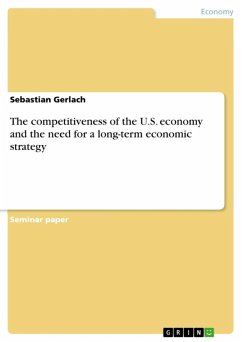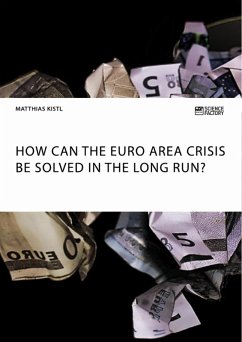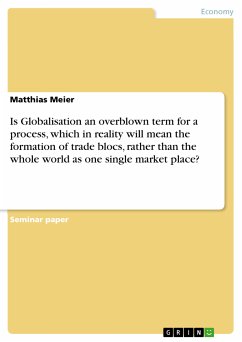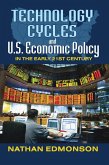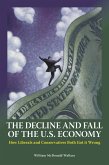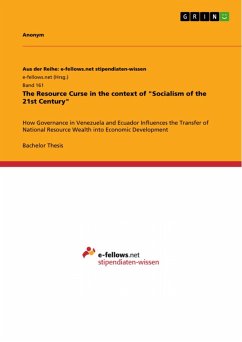Seminar paper from the year 2009 in the subject Business economics - Economic Policy, grade: 1,3, Free University of Berlin (John F. Kennedy Institute for North American Studies), course: US Economic Policy, language: English, abstract: Despite the actual recession and financial crisis, the USA is currently the most competitive economy in the world. Competitive strengths like innovation and business sophistication next to well-functioning markets keep the USA highly productive. They outweigh the competitive weaknesses of great macroeconomic imbalances and improvable institutions. The financial market is just a part of the whole picture. Although the global economic landscape changed dramatically, the rise of emerging markets like China pose no general threat to U.S. competitiveness, because it is not a zerosum game. But the superior competitive position is eroding. Forces from within the U.S. economy put the future U.S. competitiveness at great risk. Inconsistencies like a decreasing percentage of R&D-spending, the ignorance of regional industry clusters by the federal government, the low-quality education system, and ineffective regulation of markets, display piecemeal, uncoordinated policy decisions and the lack of a coherent economic strategy. The formulation and implementation of a longterm economic strategy is recommended, which addresses these inconsistencies in the short- to midterm, the enforcement of strengths and reduction of weaknesses in the long-term. Only if the USA is governed strategically, it could sustain its current superior competitive position.
Dieser Download kann aus rechtlichen Gründen nur mit Rechnungsadresse in A, B, BG, CY, CZ, D, DK, EW, E, FIN, F, GR, HR, H, IRL, I, LT, L, LR, M, NL, PL, P, R, S, SLO, SK ausgeliefert werden.

